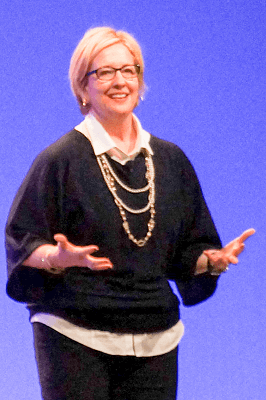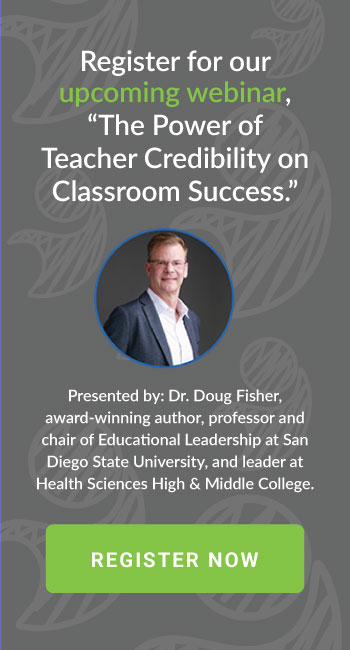One of my teachers in High School was a major proponent of literature. She had a beautiful mantra that she’d often share: “People who read get to live a thousand lives.”
I wish I had listened back then. It wasn’t until I was 28 that I took her advice and became an avid reader… and realized how little I knew, and how small and closed my mind had been.
Over the past 15 years, I’ve read over 400 books. My personal passion for reading comes from a drive to understand human nature and the process of finding happiness, success and meaning in life. Early on, it was for my own interest, but eventually it became my life’s work as well. Everyone has their own way of taking spiritual guidance from what is available to them, from looking into Ayahuasca plant medicine, to learning from the experiences of others. Each to their own I saw, as long as you are being proactive.
As I’ve become immersed in this arena, it’s grown clear that there are plenty of pretenders, and a small number of individuals who are truly on the cutting edge of personal growth.
For me, these people started with the appropriate amount of scientific research and then grounded it in real world applications. I find that research-based approaches can be too academic and traditional self-help too marketing-oriented, so I think the critical balance of any thinking model must be a blend of scientific validation and real-life practice.
What follows is my list of 5 personal development names that everyone working on their own growth should know.
Not all are thinkers in the traditional personal development model, but they’ve all had a profound impact on my life, and all have done work that can help you drive major positive results in yours.
Brené Brown and Vulnerability

This is a hard concept to grasp at first. We tend to think of vulnerability as weakness – in fact, the words “weak” and “vulnerable” are actually synonymous in our culture. But a little time reading some of Brown’s thinking will drastically alter this perspective.
Vulnerability is about living a “whole-hearted life,” in which we take risks, tell people how much we care, and generally get into a more creative space by opening ourselves up.
Brown believes the primary epidemic of our day is disengagement from life, and I strongly agree. We are all sitting on this incredible opportunity called life, yet few of us engage in a manner that allows for true meaning and joy.
If you think about your life, you’ll likely recognize that it was in moments of vulnerability that you transformed yourself, when you became more. Whether it was a difficult situation in high school, your transition to college, a new career path, a marriage, or having children, these are obvious examples of transformational times in your life when you were almost definitely at your most vulnerable.
The key is to incorporate openness to vulnerability more significantly into your life. Welcome it, and you’ll find that you’ll experience more growth and greater meaning.
John Kabat-Zinn and Meditation
I became a regular meditator on February 22, 2014. It was the most important thing I’ve ever done for myself.
Meditating has made me a better husband and father. It’s given me more focus, and allowed me to deal with adversity in a much more constructive manner.
Much of my motivation came from the work of John Kabat-Zinn. He graduated with a degree in molecular biology from MIT, and is now the Professor of Medicine Emeritus at the University of Massachusetts.
But Kabat-Zinn’s greatest contribution to society is being on the forefront of incorporating meditation into modern medicine, what is now called Integrative Medicine.
His Stress Reduction Clinic at the University of Massachusetts helped to pioneer this movement, showing not just dramatic advancements in managing stress, but also spawning a new offshoot within Cognitive Psychology, a field that impacts patients with obsessive compulsive disorder, tourette syndrome, depression and chronic pain.
When someone comes to me struggling in any way, my first advice is always to pray or meditate. By starting to practice either of these, an individual begins the process of healing.
Take a look at some of Jon Kabat-Zinn’s work. I know you’ll be inspired to take big steps forward.
Carol Dweck and the Growth Mindset
As a parent, no one has been more influential in my life than Carol Dweck. I’ve read her book Mindset many times and continue to follow and learn from her daily. Her basic premise is that we need to foster a growth mindset within ourselves and our children.
The basis of this perspective is to see life as a process of growth rather than a series of extrinsic successes and failures, which she calls the fixed mindset.
So, for example, when my child got a good grade in the past, I would reward him for it. Today we might still celebrate, but I’ll emphasize the person he became to get the grade, rather than the grade itself.
This is a powerful change in perspective, as it teaches us to look inside for validation, and to find value in the growth we’ll take forward for the rest of our lives.
As Dweck says, our ability to live this mindset will be the primary determinant of our happiness and success.
Jeffrey Schwartz and Brain Plasticity
It has been said many times that, once you hit a certain age, you pretty much are who you’re going to be for the rest of your life. Fortunately, Jeffery Schwartz, among others, has given me hope that I can still find new happiness and meaning in my life beyond what was blueprinted in my mind at age 12.
The 1990s were declared the decade of the Brain by Congress. In the 90s, new brain imaging techniques called PET (Positron Emission Tomography) and later FRMI (Functional Magnetic Resonance Imaging) allowed neuroscientists, for the first time, to observe the brain in action.
Through these technologies, they could witness what happens in the brain as we become angry, solve problems, smell flowers, pick up objects or experience joy.
Prior to this new neuroscience, the general belief was that the choices we make, the reactions we have and the emotions we feel are simply the expressions of a machine (our brain) governed by the rules of classical science, and that our behaviors follow from our fully-formed brain that more or less stopped changing at age 12.

While I had been aware of this concept for many years, it was Jeffrey Schwartz’s book The Mind and the Brain: Neuroplasticity and the Power of Mental Force that put this esoteric concept into accessible terms for me.
The realization that my ability to attend to my thoughts would help me not just in the moment but could also improve who I was permanently was a profound realization.
I think the work of Schwartz will give you the hope and courage you need to persist and believe in the possibilities of your future.
Martin Seligman and Positive Psychology
Early on in our research on the 7 Mindsets, we came across the Positive Psychology movement, driven by many but led largely by Dr. Martin Seligman.
The basic premise is that 99% of current psychology is intervention-based, or working in response to a problem. Positive Psychology, alternatively, took a preventative maintenance approach. They said, “let’s give people tools and techniques that will allow them to manage the ups and downs of life; let’s make them bulletproof from psychological and emotional issues.”
Assume that we all have a wonderful light inside of us. By doing the pre-crisis work, we can remove our impediments to happiness and allow that light to shine as brightly as possible.
That’s the point of view I want to have, and the world I want to live in.
Seligman and his group at the University of Pennsylvania have driven this perspective, and it’s a great one around which to orient how we approach life as individuals, teachers and parents.
If you get some time, visit www.authentichappiness.org. You’ll find questionnaires and a multitude of resources that will help you take a proactive stance on your development and that of those you care for.
Don’t wait for the crisis; address the little things before they become big things. You don’t have to wait till you hit rock bottom, because we have the thinking and the tools to prevent catastrophes.
If you’re going to see further than others, you need to stand on the shoulders of giants, Isaac Newton once famously said. They also say that all knowledge and opportunity comes through other people.
Like most of us, your time is limited, and you probably want to find the best use of your valuable energy. With that in mind, I cannot recommend highly enough that you spend your time with the leading edge personal development names I’ve talked about here. And, if you have others to recommend, don’t hesitate to let me know!





